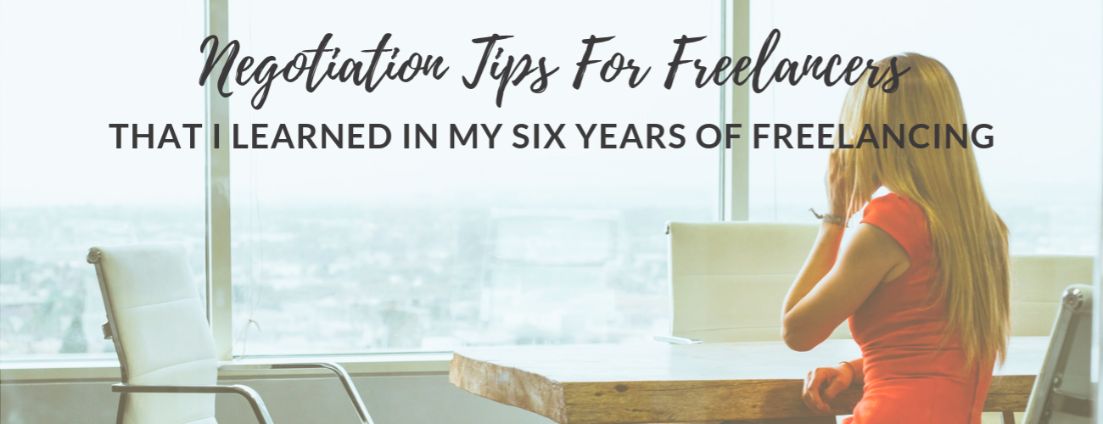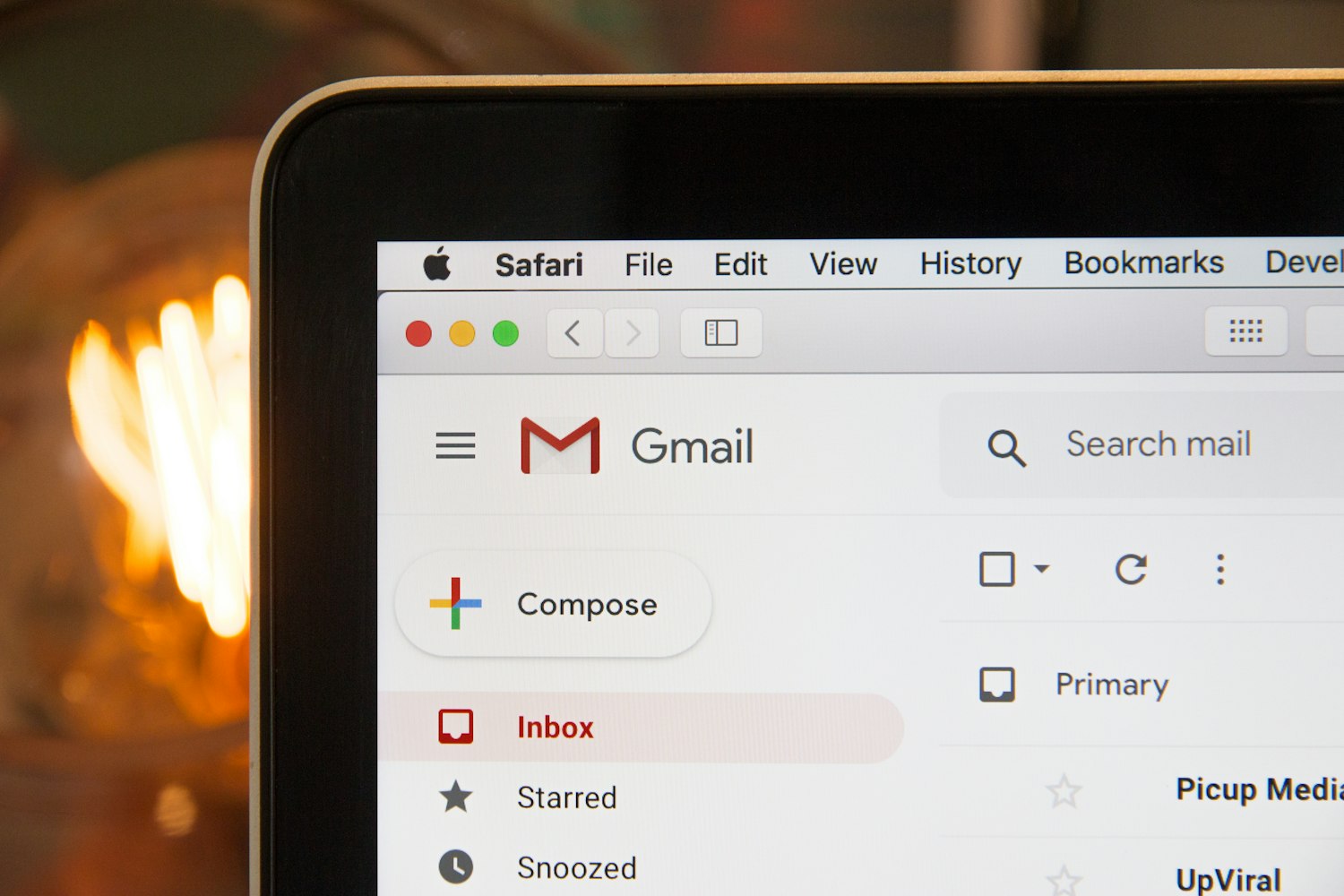
Negotiation Tips For Freelancers (That I Learned in My SIX Years of Freelancing)
Top Takeaways From This Post
Last updated on May 16th, 2020 at 12:37 am
Do you have to often negotiate with your potential clients? What are your go-to negotiation tips for freelancers? Read some of the negotiation tips & tricks that I have picked over the last few years of freelancing.
Once you leave the comfort of a salaried job and enter the wilderness of freelancing – negotiation becomes one of the most important skills that makes or breaks your career.
If you hate negotiating -like many others – you’d be poorly prepared for the world of freelance, where being successful requires you to be a master negotiator.
A lot of people think of negotiation as a conflict between the two parties. Negotiating is also NOT haggling.
Disclosure: This post contains affiliate links that may earn me a small commission, at no additional cost to you. I only recommend products I personally use and love, or think my readers will find useful.
After a few years of freelancing, I have come to realise that it is all about building rapport & nurture relationship with your potential client. You have to be willing to compromise or say no if you don’t like the offer. It is about strategically approaching a financial agreement with the other party.
Like many other freelancers, negotiation is my least favourite part of the client acquisition, but it is also an important one.
Here are some negotiation tricks and tips for freelancers that I have learned over the past few years.
1. Show Them The Value First
Here is your chance to shine. Before you jump over to negotiate, you have to convince your potential client of your abilities.
After all, the client is negotiating because they are not yet sold on your offer completely. Your first task is to show the value of working with you.
Think from the client’s perspective. They don’t know you yet. There’s no personal connection or rapport. Maybe they are not familiar with your expertise and therefore do not know what exactly a day of work looks like for you. It is your job to paint that picture in their head.
So instead of whipping out the budget right away, listen to their problem.
Then take time to explain everything you will do to solve this problem for them: desktop research, gather data or analytics, send them work-in-progress for feedback, revise and so on.
And for this…
2. Find Your Perfect Communication Method
As a new fresh-faced freelancer, I used to get on the call with the potential client. Back then I did not possess good negotiation skills. And they were especially bad on the phone.
Whenever clients asked me about my hourly rate, I would be stuck with a deer in the headlights reaction. As a result, I ended up agreeing to a budget that I was not happy with.
After a few failed negotiations over the phone calls, I realised that I suck at negotiating on the phone. So I changed up my strategy a bit.
Now I have a two-touch approach to negotiation. First, a discovery call. Second, an offer or proposal in writing.
My strength has always been written communication. So I started to use that for strategic negotiation instead.
During the discovery call, I focus on creating rapport and get to know them and their business a bit. I also let them get to know me. When the question of the cost comes up, I tell them that I will send them a written quote shortly after our call – once I have considered the scope of work properly.
After the discovery call, I prepare a nicely branded pdf highlighting my past projects (and the results!) plus how I would approach their project and my entire workflow.
Then I would add a scope of work of their project with an itemised project budget. In the same PDF, I also add small details like project deadlines, communication plan and my contact details.
For this offer, I still need a fair idea of the client’s budget. So this brings me to my next point.
You May Also Like: How Not to Get Stuck in the Rut: Stay Productive When Working From Home
3. Ask For a Budget
If the potential client is not giving you a straightforward answer about their budget in discovery call- just ask.
It is the best way to gauge their financial position. If you do not want to ask them on the phone, then send them a questionnaire after or before you get on the call with them.
Once you know their budget you can decide what scope of work you can agree on with them.
If their budget is lower than your expectations, then you can always fit in a fewer number of tasks. Alternatively, if their budget is higher than what you expected you can always add some extras.
If the client does not give you a straight reply then you will have to prepare a budget yourself.
Let’s talk about that.
4. Set a Budget Range
It is common for potential clients to ask you for your budget in the discovery phase. You may already have a figure in your mind assuming you have some idea about the scope of your work for this project.
Whenever a client asks you for a budget NEVER give them an absolute number.
By doing so you are taking away any kind of negotiating power from yourself.
Set a range of the budget.
If it is an hourly rate, then set it $80/hr – $120/hr depending on complexity or scope of work. It is quite straightforward to set a range for your hourly rate. However, you need a slightly different strategy when it comes to setting a budget range for an entire project.
Speaking of the fixed project fee…
5. Create An Itemised Offer
By this, I mean set a price for each item in your project.
I have noticed over the years, that many clients are fine paying $80/hr for a project at 10-15 hours of work each week. However, when proposed a lump sum amount of $3k for the same project, most will be a bit sceptical.
To make them comfortable with the idea of a total project fee, create an itemised list of all tasks that are expected in this project.
I charge all my projects as a fixed rate. There is a cost assigned to each task or milestone. Desktop research, 30-day content calendar, 4 blog posts, content strategy – everything has a fixed cost.
The more precise your itemising, the more transparent the whole budget looks to your potential client.
6. Be Willing to Meet Them in The Middle
Compromise – It isn’t just reserved for romantic relationships.
It is a much-needed business skill as well. Negotiate to create a win-win situation for you and your client. It does not have to be a zero-sum game.
A lot of people see negotiating as getting their way in a deal.
However, I have learned over time that it is all about building healthy business relationships. At the end of the negotiation, all parties should be happy about the agreement.
Don’t make the mistake of looking at negotiation as a way to earn quick money off your clients. On the other hand, compromise but do not bend over backwards either.
You May Also Like: High Paying Remote Marketing Jobs That Earn Me Adult Sized Paychecks
7. Never Negotiate Under Pressure
Sometimes clients will press you to answer right away, ‘So how much do you charge for this?’ ‘What is your budget for a project like this?’ ‘But but…What is the cost per lead?!!’
Never.Ever. Negotiate under that kind of pressure.
If you are not a skilled negotiator, then it may be a bit hard to navigate through it on a phone call. Simply tell them firmly and politely that you need to think about it after considering the scope of work. It always works.
This gives you more control in the negotiation spiel. And you avoid misquoting yourself under pressure. Trust me, I’m speaking from experience here.
It is always best to step back and then go back to your notes and then create an offer for your client. Whatever you do, get some headspace to think before you agree to anything.
On that note…
8. Use the Power of FOMO
Also known as scarcity marketing, exclusivity, the fear of missing out in professional mumble-jumble.
When you have several competitors, you need a hook that makes you stand out from the competition. Let your potential client know that you have limited availability in the next few months and are available right now.
Deadlines are great tools for getting people to sit up, take notice and take quick action.
9. Be Confident in Your Negotiation Skills and Abilities
Negotiation is a double-edged sword.
You over-assert your position, and you end up looking like a stubborn jerk. Or you agree to your potential client’s proposal too easily and end up appearing insecure. or at the worst – desperate.
Here is the thing.
Most people can smell insecurity and your client will get a whiff of it.
Eventually.
Once they sense your insecurity they will lose confidence in your skills or worse, you will end up agreeing to terms that you are unhappy with. Not a pretty situation for either party.
So raise that voice and don’t shy away from eye contact. Talk to your client clearly and directly about what you want.
10. Don’t Care About The Result
Negotiation is a high stakes conversation as it is. When you care about snagging this client a little bit too much, you turn negotiation into an even higher-stakes conversation.
If you are not a skilled negotiator you will crumble under pressure. And make mistakes.
Communication can break down quickly, particularly when difficulties surface during high-stakes conversations.
Try not to care about getting this project. Indifference can give clarity to your thought process.
You will be more patient, take things less personally. Most importantly, your actions do not come from a place of fear. Fear of losing this project.
If all else fails…
11. Be Ready to Walk Away
So you have used up all tactics in the books. Your potential client isn’t budging and you’re are not happy where the discussion is going.
It is time to exit the conversation.
Tell your potential client that this will not work out. Don’t get emotionally attached to the project.
And anyway, as a freelancer you should never pin your hopes on one client. The more clients you have in your pipeline, the more confident you will feel to walk away from this situation.
So build yourself a safety net and a consistent sales funnel and empower yourself to walk away in style and confidence.
Do you have to often negotiate with your potential clients? What are your go-to negotiation tips for freelancers? Tell us in the comments below.



















14 Comments
Heidi Slowinski
Great tips! I like the way you break it down.
Maggie
Thank you so much for these great tips! I’m just starting in the world of freelance writing so this is very helpful!
Yamini
Hey Maggie, you’re welcome! 🙂 Happy that you found this helpful.
Diane
Absolutely excellent pointers that every freelancer must get to grips with. Being able to negotiate is half the battle to freelancing success.
Yamini
Hi Diane,
True words. Negotiation is so vital to freelancing success.
Kimberlie
This post is very timely. I love writing , but hate negotiating. Thank you for the ideas on how to be more precise and how to ensure I’ve given appropriate compensation for the work that I complete.
Yamini
Hi Kimberlie, THanks, happy to hear that you find the post helpful. 🙂
April Key C. Rode
This post is perfect timing for negotiating and yes to be ready to walk away.
Angela
Great post! I think the idea of negotiating and even just figuring out what I should charge is part of why I haven’t taken the leap into freelancing. I need to narrow down my specialty, dig deep and find my confidence and just go for it! This was very helpful, do you usually just bid for one time jobs or are you hoping they become more of a retainer type client after the initial project? My hope would be to find several clients to work with ongoing to have less negotiations and searching for jobs in the future. Thanks!
Yamini
Hi Angela,
Thanks for the comment. Happy that you find it useful! 🙂 My contracts are a mix of one-time projects as well as ongoing ones. I keep it a mix of both types of projects as it helps to keep things exciting. 🙂 One-time projects are usually market insight reports or content strategy (or audit), on-going ones are usually social media management projects as they should be done consistently.
Melany
Well said! Your pointers are spot on and so useful in a digital era. Really enjoyed this content.
Yamini
Hi Melany,
Thanks so much! Glad you found this post useful 🙂
Mona
Thank you for your tips! I suck at negotiating! I have the whole conversation prepared in my head and I just lose it when talking on the phone.
Yamini
Hey Mona, Thanks for your comment. I used to have this exact issue. Now I just control my impulses and tell my potential clients, that they will get a written proposal with budget options. If they still persist, I tell them, sorry, but I need time to think. They seemed to stop pushing then. This really saved me from making some poor negotiations ha!!